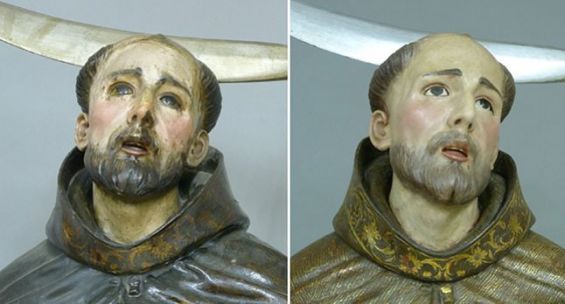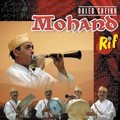During the seventeenth century, the Kingdom of Morocco attracted intense missionary efforts from the Iberian peninsula. Several Christian preachers were sent into missions and embassies to Morocco to revive Christianity and comfort Christian slaves in the Kingdom. Juan de Prado, a Spanish Catholic priest, was one of the preachers who was elected as an apostolic missionary to Morocco. His mission, however, met a tragic end.
Around the 1630s, de Prado was sent to Marrakech by Pope Urban VIII, head of the Catholic Church and ruler of the Papal States from 6 August 1623 until his death in 1644. The priest, who was also a professed member from the Order of Friars Minor, sailed to the Kingdom, ruled then by the Saadi dynasty, to work among the Christian population.
«John arrived in Morocco, cleverly arranged for admittance to the prisoners, comforted them, administered the holy sacraments, and fortified them wonderfully by his inspiring exhortations, so that they were ready to suffer everything rather than deny the Christian Faith», wrote Roman Catholic Saints.
While working closely with Christian slaves in Morocco, Juan de Padro attracted bad attention. His activities among Christian slaves and Muslims in the Kingdom angered the Moroccan authorities. According to «Jews under Islam in early modern Morocco in travel chronicles» by Maite Ojeda-Mata, «in Azamor, the future martyr of the Church, Fray Juan de Prado, maintained impassioned religious discussions in Spanish with the Muslims and Jews of the town».
Executed by a Moroccan sultan
Consequently, the Spanish priest was arrested and enslaved. He was forced to do hard labor like other slaves until he was brought before Saadi sultan Al Walid ben Zidan. «The king had him brought before him several times in the hope of getting him to apostatize; but always in vain», Roman Catholic Saints.
During one of their meetings, the sultan «scourged, and he himself dealt him a blow on the head with a sword», it recalled. The sultan ordered that de Prado be burnt. The latter was executed following the orders of the Saadi sultan on May 24, 1631.

The death of the priest made of him a martyr in Christianity. «The news of his death had spread rapidly, and in less than a week the papacy had already been informed of the event», Daniel Hershenzon wrote in his book «The Captive Sea: Slavery, Communication, and Commerce in Early Modern Spain and the Mediterranean» (University of Pennsylvania Press, 2018).
After his death, Christians in Marrakech «sought body parts of the Franciscan Juan de Prado, who had been burned to death, local renegades pressured the Muslim authorities not to give permission, warning that the relics would serve a cult dishonoring Islam», the same book added.
The tragic death of Juan de Prado pushed the Church to beatify him, and he later became considered a martyr. In 1728, almost a century after his death in Morocco, Pope Benedict XIII declared that the late Franciscan had been killed «in odium fidei».




 chargement...
chargement...












